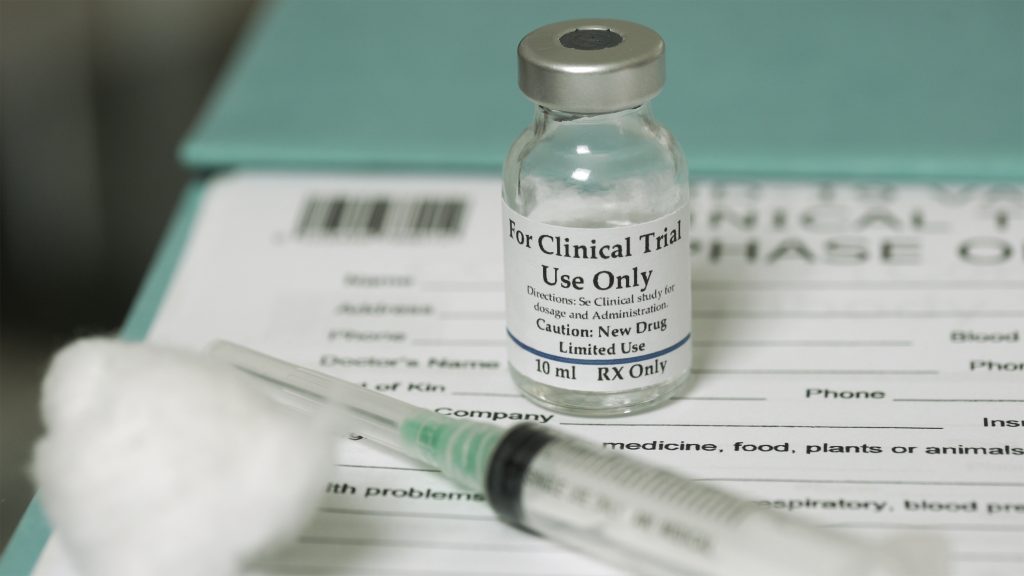Ethics and Governance: the complexities of setting up a human trial
With more than 50 clinical trial networks and an 8,000-strong workforce skilled in all areas of life sciences, Australia is a highly competitive destination for clinical trials. In 2019 alone, 95,000 people participated in over 1,800 clinical trials across the country.
Thanks to its streamlined approval process and world-class infrastructure, 30% of clinical trials in Australia are conducted in NSW. Yet, for researchers working in the state, navigating ethics and governance of clinical trials can be baffling.
Research Ethics and Governance Information System (REGIS) subject matter expert and a team leader at NSW Health Kylie Becker says setting up a clinical study is complicated, there are many parties involved and regulations to follow. “There has to be a lot of hoops for a researcher to jump through before they can begin their research, because we need to make sure that our patients are being presented with only the highest quality clinical trials that are safe, well planned and appropriately costed. We want to make sure that the participants of these studies have confidence their participation will be valuable and not go to waste.”
Becker explains that not all researchers participate in clinical trials on a regular basis. Many people are new to setting up a study or haven’t run one in a long time, so navigating the complicated process of obtaining all required approvals may be confusing for them.

Understanding ethics and governance
Every human research study conducted within a public health organisation or local health district must adhere to stringent ethical and governance standards. According to Helen Haysom, project coordinator at Monash University’s Transfusion Research Unit, researchers frequently fail to recognise the distinction between the ethics and governance process and “see it all as ethics”.
Ethics applications are reviewed and approved by an ethics committee consisting of clinicians, experts and laypeople. In an ethics application, researchers are asked to outline their project, detail their study protocol, and provide documentation proving the study’s validity. “They are basically asking the committee, ‘Can I do this study? Does it hold scientific and ethical weight?’,” Becker says.
The work of the committee does not end with approval of a trial. As the study progresses, the ethics committee ensures that the researchers conducting the clinical trial comply with the conditions under which the permission was granted, says Haysom. “You must demonstrate that you are doing what you said you would.”
Ethics applications and reviews are crucial in human trials. “There is a possibility that someone will be harmed,” says Becker. “You want to make sure that you exercise diligence and that those reviews are done correctly but in a timely way.”
Researchers must also obtain site approval from each site taking part in the study. In observational studies, governance officers are primarily concerned with ensuring the hospital has the necessary resources and budget to carry them out. There are no risks for participants associated with observation studies because they receive standard care while researchers only collect data. However, there are risks around how participants’ data is managed, which governance officers aim to mitigate.
When conducting an interventional trial, researchers must also report on the number of participants, the type of intervention, the equipment or drugs used, and any incidents or adverse events that occur during the study.
Good overarching governance of research – which includes the ethics and site application process – provides guidelines for researchers, Human Research Ethics Committees and others conducting an ethical review of research. Importantly, it also emphasises institutions’ responsibilities for the quality, safety and ethical acceptability of the research they sponsor or permit to be carried out.
Until 2017, each public health organisation in Australia had its own application process. These were typically a combination of hard-copy letters and emails. Each hospital would have its own set of rules and forms. “Ultimately, they all wanted the same thing, which was that the studies were done properly,” Haysom says. “But they all had their own forms and their own ways of doing it. Staying on top of it all was time-consuming and confusing for our researchers.”

REGIS reduces duplication and simplifies reporting requirements.
Haysom, who oversees more than 150 sites, says the implementation of REGIS in NSW has made it significantly easier to set up human research studies and registries. REGIS is a centralised portal through which researchers can submit their ethics and governance applications once, rather than for each hospital where the study is being conducted.
Researchers also use REGIS to submit their study’s protocol and annual reports on the trends of the study, notify governance officers about adverse events and incidents, and upload all necessary documentation. The system manages reminders and allows a single entry of information and documents that are shared across the system “It keeps track of all important documents,” Haysom says.
The accuracy of documentation is a critical component of establishing a human research study. It ensures participants are safe and risks minimised; there are no biases or improper behaviour. “That’s what good clinical practice training teaches you,” she says. “Proper reporting is vital in clinical trials and must be done meticulously.”
Updated 2 years ago